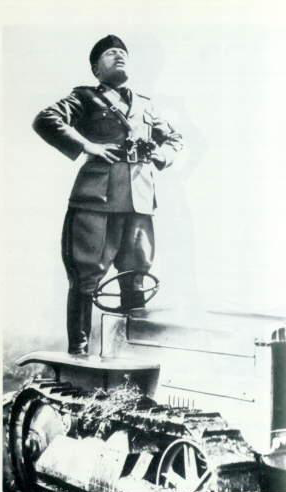What Is Autarky? A Forgotten Term with a Troubling Past
In recent years, American political discourse has increasingly embraced economic nationalism. From campaign rallies to policy platforms, slogans like “America First” have resurfaced with force—a phrase notably championed in the 1930s by the America First Committee, which opposed U.S. involvement in World War II and often echoed isolationist and nationalist sentiments (Doenecke, 2021). The phrase “America First,” originally championed by the America First Committee in the 1930s, has been revived in modern economic nationalism rhetoric, raising concerns about historical amnesia and the return of isolationist thinking. These ideas appeal to a sense of national pride and promise renewed strength through domestic production, trade protectionism, and reduced reliance on foreign supply chains. But beneath the surface of these popular narratives lies a troubling historical resonance that demands closer examination.
The Shadow of Self-Sufficiency
Rarely mentioned yet deeply relevant to this conversation is the concept of autarky. This term refers to a nation’s pursuit of economic self-sufficiency—a rejection of international trade and interdependence in favor of producing everything domestically. While it may sound like a strategic shield against globalization’s volatility, autarky carries a dark legacy that should give us pause.
According to Investopedia (2023):
- Autarky refers to the state of self-sufficiency and is typically used to describe nations or economies that have the goal of reducing their dependence on international trade.
- There are no fully autarkic nations in the modern world, as even the most isolated have some level of participation in international trade and receive outside support or aid.
- North Korea and Nazi Germany are two examples of nations that have pursued a policy of autarky.
- The justification for autarky often draws on populist arguments of keeping money at home and out of the hands of politically unfriendly nations.
Economic Nationalism Then and Now

Historical Precedents and Warning Signs
Nazi Germany’s Pursuit of Autarky involved societal control through Self-Sufficiency. Under Nazi Germany, autarky was not merely an economic strategy—it was a calculated tool for preparing for war. This was evident in initiatives like the Four Year Plan and efforts to develop synthetic fuel and rubber, which aimed to insulate the regime from foreign dependence and enable military expansion (Tooze, 2006). By insulating the economy from external dependence, the regime sought the freedom to act militarily without fear of foreign economic pressure or sanctions. It was about more than securing supplies of grain, oil, or rubber; it was about ideology, control, and eventually, conquest.
Similar patterns emerged in fascist Italy, where Mussolini’s “Battle for Grain” attempted to achieve agricultural self-sufficiency regardless of economic efficiency (Corner, 2002). Japan’s imperial expansion in the 1930s was likewise driven by autarkic ambitions, as the nation sought to create a “Greater East Asia Co-Prosperity Sphere” to secure resources for its economy and military (Barnhart, 2013).
Contemporary Echoes
Contemporary policies that echo autarkic logic—tariffs, withdrawal from multilateral trade agreements, aggressive reshoring campaigns—may seem motivated by legitimate concerns: job losses, economic inequality, supply chain vulnerabilities, and national resilience. But we must ask: when does protection turn into isolation? When does national pride become an excuse to rewrite the rules of global engagement, both internationally and domestically?
Consider the recent withdrawal from long-standing trade partnerships or the push to restrict foreign investment in critical industries—are these signs of necessary caution, or steps toward disengagement? As Irwin (2020) argues in “Free Trade Under Fire,” protectionist policies often produce outcomes contrary to their stated intentions. The 2018-2019 tariffs on steel and aluminum, for instance, saved approximately 1,000 jobs in the metals industry while destroying as many as 75,000 jobs in metal-using industries due to higher input costs.
Democratic Guardrails and Their Limits
Unlike 1930s Germany, today’s United States operates within a functioning (if strained) democratic framework. However, growing political polarization and increasing signs of democratic backsliding raise urgent questions (Levitsky & Ziblatt, 2018). The country maintains a deeply interconnected global economy and a pluralistic society. But we would be naive to think that these safeguards are permanent or immune to erosion. History rarely repeats itself directly. It echoes, softly at first, through seemingly disconnected policies and rhetoric that incrementally shift the boundaries of acceptable discourse and action.
As Rodrik (2018) observes in his “trilemma” framework, nations cannot simultaneously maintain democratic politics, national sovereignty, and deep economic integration. When economic nationalism rises, something must give—and too often, it is either democracy or international cooperation that suffers.
Beyond Security: The Hidden Costs
The pursuit of economic self-sufficiency carries hidden costs that extend far beyond balance sheets and trade deficits. As Posen (2021) details in “The Price of Nostalgia,” extreme protectionism not only reduces economic efficiency but also corrodes the institutions that maintain global stability. When countries retreat behind economic barriers, they may inadvertently create the very conditions of mistrust and security competition they sought to avoid.
This is not to suggest that global trade arrangements are beyond criticism. Indeed, as Stiglitz (2019) points out in “People, Power and Profits,” many aspects of hyper-globalization have generated legitimate grievances. But the response to these problems should not be a retreat to autarkic fantasies but rather a re-imagining of globalization that better serves broad social interests.
History Doesn’t Repeat—But It Echoes
We are not claiming that today’s leaders are planning military conquest in the mold of 20th-century dictators. Rather, we are asking why some of the same economic tools once wielded by authoritarian regimes are being revived without sufficient scrutiny or historical awareness. What happens when a nation begins to see trade not as cooperation but as vulnerability? When interdependence is viewed not as a strength but as a threat?
According to analysis by Colantone and Stanig (2019), regions more exposed to trade shocks show greater support for nationalist and protectionist policies—a pattern consistent across Western democracies. This suggests that economic insecurity creates fertile ground for nationalist appeals, regardless of their long-term consequences.
The Path Forward
Autarky should not be romanticized. Its history is not one of self-reliant utopias but of regimes preparing for a future they could control, even at great cost to their people and the world. Economic self-sufficiency may sound appealing in an age of uncertainty, but we must remain clear-eyed about where such thinking has led before—not only in Nazi Germany, but also in other regimes where autarkic policies preceded repression, such as North Korea or Maoist China (Delury & Moon, 2022; Dikötter, 2016).
To preserve a free and open society, we must stay vigilant. Economic strength is important. But history shows us that how we pursue it matters just as much as the goal itself. As Acemoglu and Robinson (2012) demonstrate in “Why Nations Fail,” inclusive economic institutions that foster broad participation and innovation consistently outperform extractive ones focused on narrow interests—whether those narrow interests are framed in nationalist terms or not.
The tools of the past are resurfacing. It is our responsibility to recognize them—and to choose a different path that balances legitimate concerns about economic security with an appreciation for the stabilizing effects of interdependence and cooperation.
References
- Acemoglu, D., & Robinson, J. A. (2012). Why Nations Fail: The Origins of Power, Prosperity, and Poverty. Crown Publishing Group.
- Barnhart, M. A. (2013). Japan Prepares for Total War: The Search for Economic Security, 1919-1941. Cornell University Press.
- Colantone, I., & Stanig, P. (2019). The Surge of Economic Nationalism in Western Europe. Journal of Economic Perspectives, 33(4), 128-151.
- Corner, P. (2002). The Fascist Economy, 1922-1940. In A. Lyttelton (Ed.), Liberal and Fascist Italy: 1900-1945 (pp. 133-154). Oxford University Press.
- Delury, J., & Moon, C. (2022). On the Brink: [redacted], Kim, and the Threat of Nuclear War. Cambridge University Press.
- Dikötter, F. (2016). The Cultural Revolution: A People’s History, 1962-1976. Bloomsbury Publishing.
- Doenecke, J. D. (2021). America First: The Anti-war Movement, Charles Lindbergh and the Second World War, 1940-1941. Routledge.
- Investopedia. (2023). Autarky Definition. Retrieved October 25, 2024, from https://www.investopedia.com/terms/a/autarky.asp
- Irwin, D. A. (2020). Free Trade Under Fire (5th ed.). Princeton University Press.
- Levitsky, S., & Ziblatt, D. (2018). How Democracies Die. Crown Publishing Group.
- Posen, A. S. (2021). The Price of Nostalgia: America’s Self-Defeating Economic Retreat. Foreign Affairs, 100(3), 28-43.
- Rodrik, D. (2018). Straight Talk on Trade: Ideas for a Sane World Economy. Princeton University Press.
- Stiglitz, J. E. (2019). People, Power, and Profits: Progressive Capitalism for an Age of Discontent. W. W. Norton & Company.
- Tooze, A. (2006). The Wages of Destruction: The Making and Breaking of the Nazi Economy. Allen Lane.
Many-Roads Related Publication(s)
This content is free to use, adapt, and share.
Knowledge and information should be open—please spread them far and wide.A few things to keep in mind:
- All of my work comes with absolutely no warranty, expressed or implied. However…
- It will almost certainly work until it breaks,
though I must admit it may never work or be useful—and that would be sad.- If/when it breaks, you can keep all the pieces.
- As for what you don’t like, it’s yours to do with as you will.
- If you find my materials helpful, both you and I will be happy (at least for a while).
- My advice is worth every penny you paid for it!
Full disclosure:
I use various AI systems to assist in developing my content.
If you’re curious about how I use them, feel free to check out:
The Revolutionary Impact of AI on Genealogy and Historical Research.


